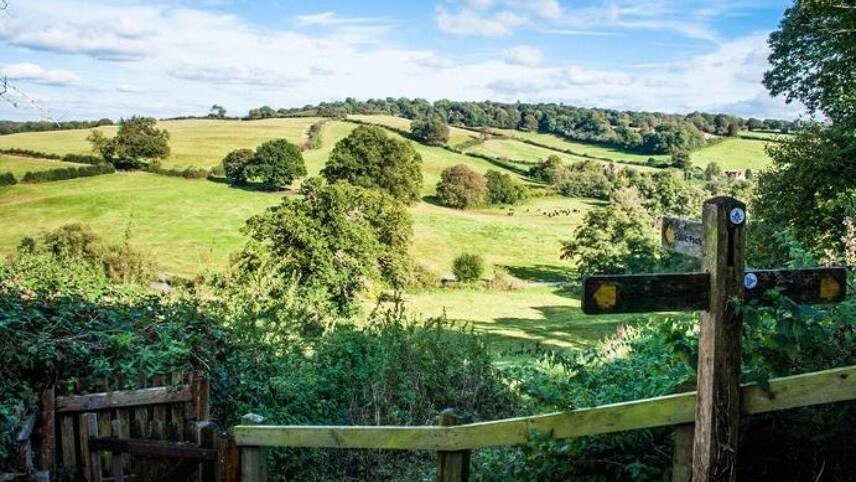Register for free and continue reading
Join our growing army of changemakers and get unlimited access to our premium content

The Environment Bill will soon mandate net-gain for all housing developers
Called ‘Building Biodiversity’, the package will consist of a string of reports containing best-practice advice on operations, supply chains and policy engagement – the first of which has been published this week.
This first report argues that the tools which developers have been given to measure biodiversity and implement net-gain are “fundamentally flawed”, in that they permit external offsetting and that they “are built on generalised assumptions of the importance of habitats that, in many cases, do not adequately take into account factors such as the wildlife that rely on them and regional variations in the habitats themselves”.
These flaws, the report warns, could lead to developers investing in “ineffective” habitat enhancements that “add little true value to the environment”.
In order to avoid this issue – which it warns could lead to development delays, a lack of government support or even environmental litigation – EPR is calling on developers to work with master planners and ecologists prom planning to final delivery.
The firm’s report also includes practical advice on creating and improving spaces for wildlife on-site and working with local councils to create nature recovery strategies more broadly, while improving wellbeing and property value for residents.
If developers get these measures right, the report concludes, they stand to reap not only environmental benefits, but benefits across reputation and the bottom line. Reputationally, the report explains, surveys have repeatedly shown that the UK public believe businesses have a moral obligation to halt biodiversity loss. And, financially, it explains how accessible, high-quality habitats can add up to £77.9bn to the value of UK housing stock by 2050.
“Consumers have proven that they will vote with their feet on environmental issues, and developers must respond to these expectations through their projects,” EPR’s principal consultant and managing director Ben Kite said “Those that do so will also benefit from the substantial sales premium that results from well-planned green space near homes.
“This is a golden opportunity for developers to show that the natural environment can be improved because of new development – not despite it.”
Robert Spencer, Chair of the Environmental Industries Commission (EIC)’s taskforce on Natural Capital, recently penned an exclusive blog for edie on net-gain. You can read that insight in full here.
Time for acceleration
Some developers already follow a biodiversity net-gain approach voluntarily. Among them are Berkeley Group, Balfour Beatty and Warwickshire County Council. Moreover, almost half (44%) of UKGBC gold leaf members have created a biodiversity strategy.
But the Environment Bill – which recently passed its second reading in the commons – will mandate net-gain, setting ambitious restoration policies covering wildlife, water, soil and air quality for many developers.
In its current form, the Bill will require the builders of all new homes – no matter where they are located or how large the development is – to prove their projects have enhanced nature “for local communities”. The Bill also contains the establishment of a UK-wide Nature Recovery Network, overseen by local authorities. For such a measure the be established, the Bill includes measures to give local councils and citizens more funding and say in conservation and restoration of forests, woodlands and peatlands.
While these measures have, broadly, been welcomed, green groups continue to express concerns over proposals that would require developers to pay for biodiversity offsets in other regions if their projects result in habitat loss that cannot be made up locally. Moreover, the Bill does not place new requirements on developers of commercial buildings, or of large-scale infrastructure.
Away from the Environment Bill, the Treasury is undertaking a major global review into the economic value of biodiversity, including the financial risks of its decline and rewards of its stewardship. The review was kick-started by then-Chancellor Philip Hammond at the 2019 Spring Statement.
New Chancellor Rishi Sunak’s first Budget built on Hammond’s biodiversity provision with a £640m Nature For Climate Fund. The Fund will back tree planting and peatland restoration projects across England, in order to spur carbon sequestration in line with the Government’s 2050 net-zero target.
Once the Fund is in full swing, Sunak has promised that the Treasury will launch a Nature Recovery Network Fund that will enable businesses and local communities to collaborate on existing wildlife restoration projects. A Natural Environment Impact Fund to help “prepare green projects that could be suitable for commercial investment” is also in the pipeline.
These measures were welcomed by the likes of The Wildlife Trusts, WWF and IEMA. However, green groups questioned their juxtaposition against measures such as increased roads spending and fuel duty freezes.
Sarah George


Please login or Register to leave a comment.